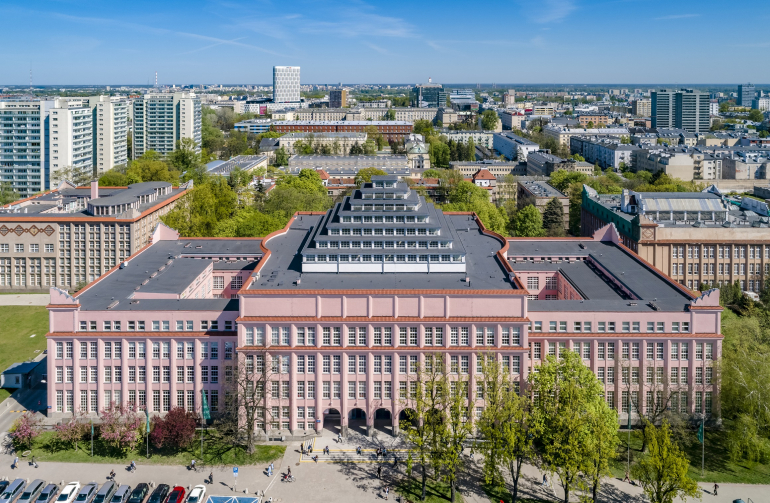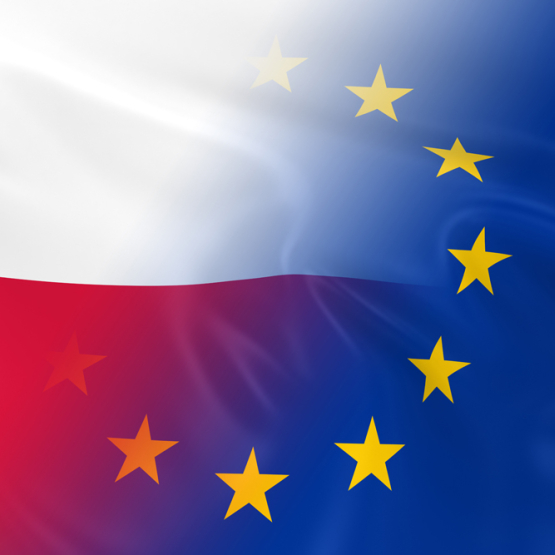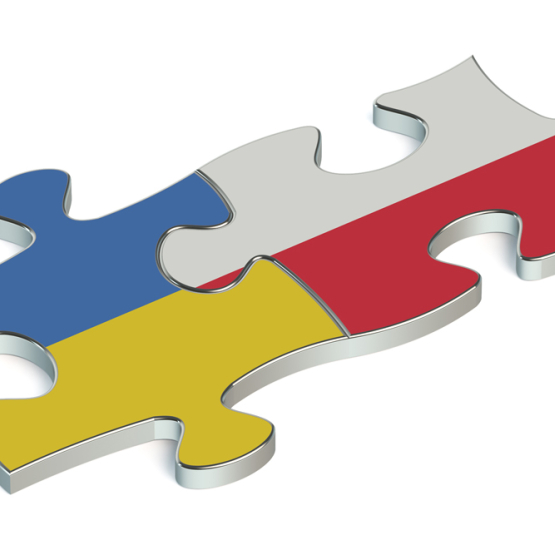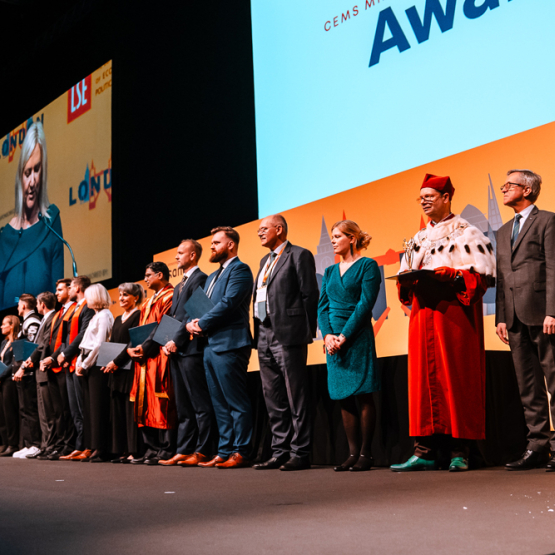
For many years, competitions announced by the National Science Centre (NCN) in Poland have attracted great interest among researchers from various academic centres all over Poland. In this year’s edition, funding was granted to two projects submitted by SGH researchers and two consortia including our University.
- Principal Investigator: Prof. Anna Visvizi, PhD, Collegium of Socio-Economics – “Smart cities: modelling, indexing and competitiveness analysis of a smart city” – PLN 314,516;
- Principal Investigator: Prof. Piotr Błędowski, PhD, Collegium of Socio-Economics – “Households in coronavirus times: Work, education and support under uncertainty” – PLN 526,400;
- Consortium: Collegium of Socio-Economics, SGH (leader), College of Economics, Finance and Law of the Cracow University of Economics – “Natural gas dynamics in the context of energy sector transformation” – PLN 328,760; Principal Investigator: Prof. Michał Rubaszek, PhD;
- Consortium: Collegium of World Economy, SGH (leader), Faculty of Psychology, University of Warsaw – “Behavioural errors in corporate risk management and investment decisions in the era of COVID-19 pandemic and their impact on selected macroeconomic indicators in Poland” – PLN 795,464; Principal Investigator: Prof. Adam Szyszka, PhD.
Below presented are the most important frameworks and problems to be tackled by the researchers under these grants.
Project: „Smart cities: modelling, indexing and competitiveness analysis of a smart city”
The literature on smart cities (SC) is vast and both inter- and multidisciplinary. SCs are analysed from three perspectives, i.e. as an abstract entity (which initiates discussions, e.g. on the possibilities of urban governance and civil liberties in a smart city); as an object (which paves the way for research oriented towards the application of sophisticated communication and information technologies (ICTs) in urban space; and finally, as a strategy objective and direction of public policy. To date, SCs have been discussed in the literature from the perspective of engineering, computer science, urban planning, geography and social sciences. The much needed use of economics in research on SCs has crystallised relatively recently and hence there is much room for research and scholarly discovery. The present project follows this lead. Likewise, the recent requests to quantify and measure the „smartness” of SCs provide an opportunity to respond to those who, quite wrongly, see SCs merely as a new name for the implementation of the neoliberal agenda in urban spaces. This project also addresses these interrelated strands of discussion about SCs.
This project was born out of the observation that modern technologies are part of our lives. Thus, omnipresent ICT-based solutions are gradually penetrating public life, including our cities. As a result, we are witnessing the transformation of cities into SCs. As cities and urban areas around the world are facing many challenges, a targeted, well-considered use of technology in urban spaces can help to mitigate those challenges. Since economic processes and business activities at the company level are the most effective mechanisms for driving economic development and growth, this project, by combining economics with the topic of SC, fills a gap that has emerged in research on SCs. In other words, this project examines the specific relationship between, on the one hand, the services, applications and infrastructures supported by ICT and constituting the essence of SCs, and, on the other hand, economic activity, innovation, competitiveness and growth. The project provides answers to the following questions and problems:
- Relatively little has been written on the economic performance of SCs, especially with regard to competitiveness. This project addresses this issue by conceptualising and exploring the relationship between ICT-enabled applications, services and infrastructure in SCs and the competitiveness of smart cities. By doing so, this project introduces the concept of „smart city competitiveness” to the literature.
- Evaluation models for SCs are still at a budding stage. This project contributes to this strand of research by conceptualising and modelling competitiveness of SCs.
- Even less has been written about business activities in the context of SC competitiveness. This project explores this issue by asking about the role of the private sector in enhancing and sustaining SC competitiveness.
- Research on the complex issue of factors that drive the competitiveness of SCs is still at an early stage. This project explores this issue in detail.
- Ultimately, if SCs are to be considered as a strategy and policy objective, it is essential to equip policy makers with a set of tools and concepts to develop strategies based on research findings (evidence-based policymaking). This project also offers to fulfil this goal.
Project: „Households in coronavirus times: Work, education and support under uncertainty”
The aim of the project is to assess changes in the life situation of households under conditions of change and uncertainty triggered by the COVID-19 pandemic, including in particular the occupational situation as well as the extent and forms of support provided by public institutions, NGOs and informal groups to individuals and families affected by the social and economic consequences of the COVID-19 pandemic.
The project is based on the analysis of diaries and blogs collected in two editions of the diary competition entitled “The daily life in times of coronavirus.” The first edition collected 448 diaries, while the second edition will end in March 2021 and is expected to produce an equally high number of entries. The collected material will allow to analyse around 900 diaries and compare the daily life in both waves of the pandemic. The database of diaries will be complemented by desk research, i.e. findings from other projects devoted to the flow of the pandemic in Poland and worldwide.
The data collected in the diary competition will be developed and further explored using the following methods
1) individual in-depth interviews with representatives of support institutions, including schools, social welfare centres, government labour offices;
2) case studies with diary authors representing household categories that are selected for detailed analysis, including in-home visits, individual in-depth interviews with diarists and short follow-up interviews with household members.
The main hypothesis of the study, formulated on the basis of the preliminary analysis of diaries, is that the pandemic, although it caused major disruptions in daily life, does not trigger rapid changes in the social situation and material position of families. Thus, it mainly exacerbates the previously existing problems and barriers in everyday life, and most strongly affects individuals and families who have been struggling with various problems for a long time (the first group of interviewees). A separate category that requires rapid identification comprises people who fell into a difficult situation primarily because of the pandemic, although they previously managed alone (the second group of in-depth interviews). The study will also cover a group of respondents who believe that their household situation has at least not deteriorated. The diaries collected and interviews conducted will allow researchers to identify the scale and vector of changes in households, coping methods and ways of addressing needs during the pandemic, as well as existing support networks. After one year, the interviews will be repeated to verify the situation of households and the impact of the pandemic on their situation. This will produce 24 case studies, covering a period of almost two years. This material will be unique and will be used for scientific analysis on the impact of the pandemic and unexpected change on the livelihoods and social situation of households.
The perspective of households will be juxtaposed with that of support institutions responsible for meeting key needs, as well as for intervening in crisis situations. The respondents will represent social welfare institutions, labour market policy actors and the education sector (school headmasters and teachers), which will provide material for analysis in the field of social welfare and social work, labour market policy and education. A total of 24 expert interviews will be conducted with representatives of such institutions.
The effort to collect data from biographical research in the form of diary competitions, combined with case studies and interviews with representatives of support institutions will enable a better understanding of how households have coped with the consequences of the pandemic, the mechanisms for meeting their needs and obtaining informal and institutional support. On this basis, actions and measures will be proposed for national and local social policy actors.
Project: „Natural gas dynamics in the context of energy sector transformation”
Natural gas is the third most important source of energy in the global and European economies, and its share in the total renewable and non-renewable energy supply is approx. 25%. Moreover, its importance in the energy mix has been growing steadily since the “shale revolution.” The latest forecasts, however, indicate that the significance of this raw material as an energy source will continue to rise in the coming years. The reason for the growing popularity of natural gas is that: (i) it is less environmentally degrading than other fossil fuels, (ii) the highly flexible energy supply from natural gas-fired power plants is an excellent complement to the highly volatile renewable energy supply (RES), (iii) natural gas is increasingly available thanks to developments in liquefaction infrastructure (LNG) and competitive prices. For these reasons, natural gas has become an important element of energy policy, both at European and national level.
The structure of the European natural gas market has changed significantly over the past decades. Firstly, the increased importance of electricity generation from alternative energy sources has led to a growing demand for gas-fired power plants. Secondly, the structure of European gas imports has changed significantly: the share held by traditional suppliers (Russia, Norway and Algeria) has shrunk in favour of LNG exporters (Qatar, United States). Thirdly, a systematic development of European gas hubs has been observed (e.g. TTF in the Netherlands and NBP in the United Kingdom), and new hubs are planned to be constructed in Central and Eastern Europe. The last two decades have also seen a divergence of natural gas and oil prices, accompanied by a change in pricing mechanisms, i.e. a shift from long-term contracts towards real-time pricing at gas hubs. In our view, all of the aforementioned changes call for an in-depth analysis, focusing on price formation on the European natural gas market and the sources of price fluctuations.
In the present project, we plan to address the issues mentioned above. Our primary objective is to understand the factors that shape natural gas prices, both globally and in local markets, while taking into account the interplay between these markets. In particular, we plan to begin our research by performing a thorough analysis of the dynamics of the natural gas market in the USA and selected European countries, including Poland. For this purpose, we intend to employ dynamic econometric models. Our research concept will allow us to: (i) accurately determine the impact of demand and supply factors in the U.S. natural gas market and provide reliable estimates of price elasticities, (ii) determine the extent to which the situation in the European gas market is dependent on price developments on the U.S. gas market, (iii) highlight the interdependence between European natural gas markets in the context of the structural changes described in the previous paragraph, and (iv) illustrate the relationship between the development of gas infrastructure in Europe and gas prices in European countries. The results of the research should foster a more complete understanding of price formation in the global and local natural gas market. Our analysis will also enable us to present conclusions for the European and Polish energy sectors in terms of security of natural gas supplies, economic costs of imports and the role of natural gas in the transformation of the energy sector.
Project: „Behavioural errors in corporate risk management and investment decisions in the era of COVID-19 pandemic and their impact on selected macroeconomic indicators in Poland”
The COVID-19 pandemic caused great turbulence in global financial markets. It had a particularly destructive impact on the situation in enterprises, triggering irrational attitudes towards corporate risk as well as investment policy among corporate managers. Therefore, the first objective of our research project will be to investigate whether managers of companies listed on the Warsaw Stock Exchange are susceptible to selected behavioural errors, as described by psychologists, related to irrational risk preferences. Additionally, we want to study whether susceptibility to these errors can influence selected managerial practices in the area of risk management and investment policies. The second objective of our project is to build an agent-based model (ABM), which is a new form of simulation in the social sciences. This model will test whether there is a relationship between the micro level (i.e. between the aforementioned irrational managerial practices resulting from vulnerability to behavioural errors) and the macro level (i.e. some macroeconomic indicators in Poland, such as aggregate investment, employment and growth). Finally, it is worth highlighting the theoretical and practical benefits of this research project. Firstly, still very little research has been conducted on the psychological determinants of decision-making among corporate managers. Secondly, even fewer studies employ the aforementioned innovative simulation approach of ABM. Our project will be carried out under a cooperation agreement between the Collegium of World Economy of the SGH Warsaw School of Economics and the Faculty of Psychology of the University of Warsaw. Furthermore, we will cooperate with the University School of Advanced Studies (IUSS) in Padua, Italy. Finally, we plan to involve doctoral students in the project, thus contributing to the education of young researchers. All these factors indicate the high quality of academic work as well as the social benefits of our research project.



